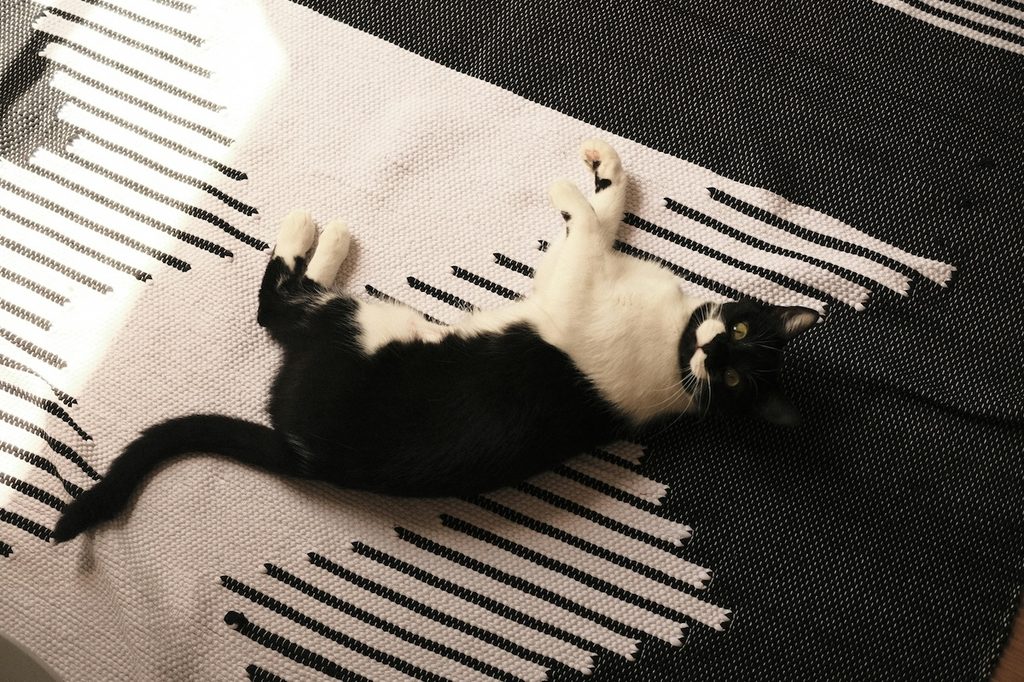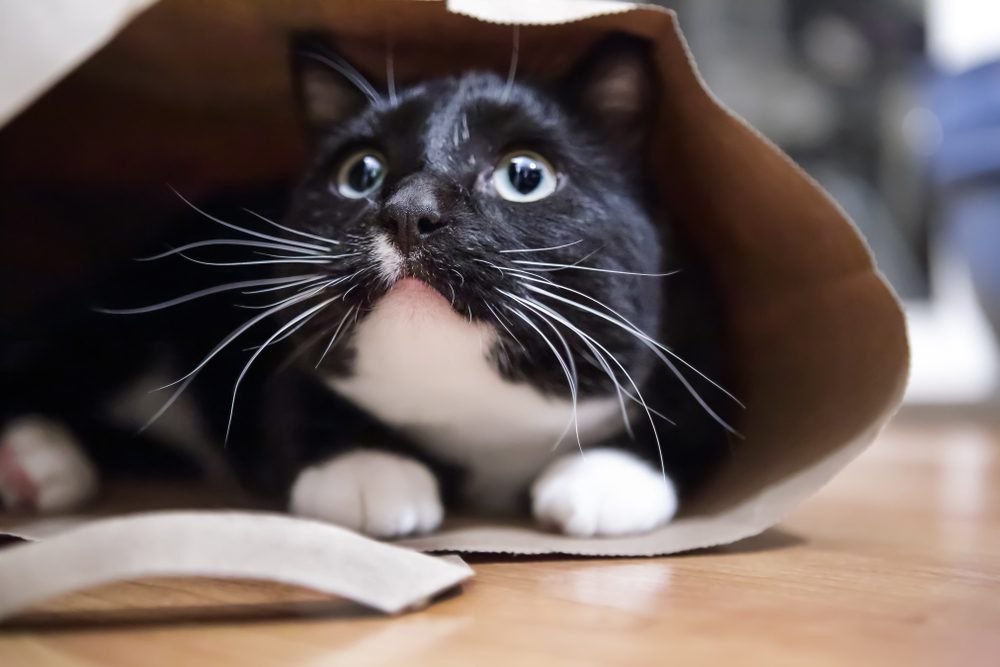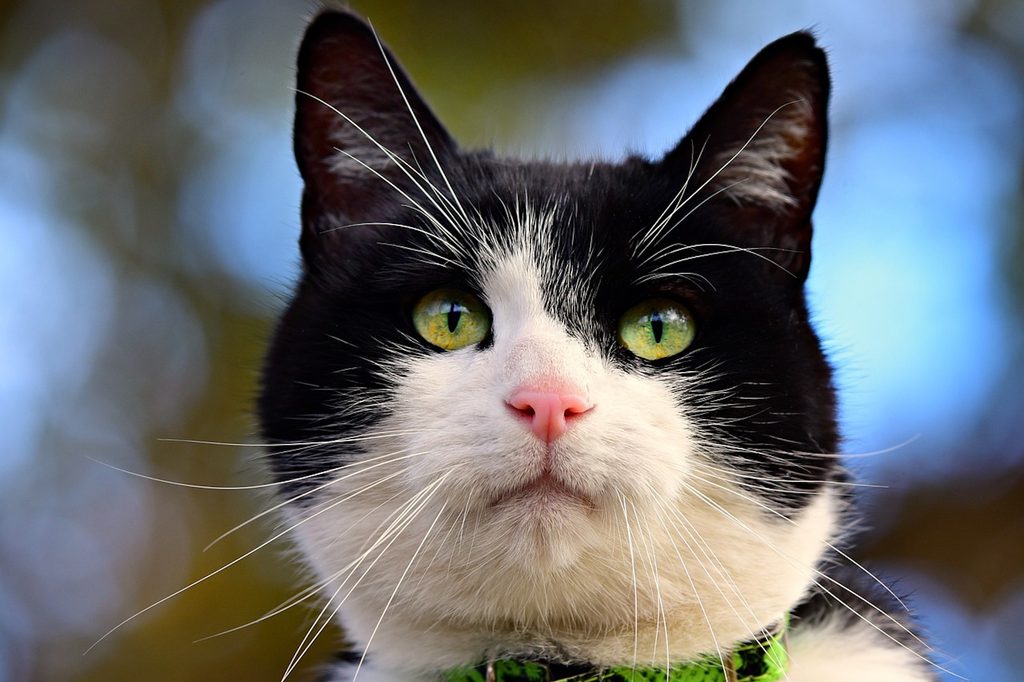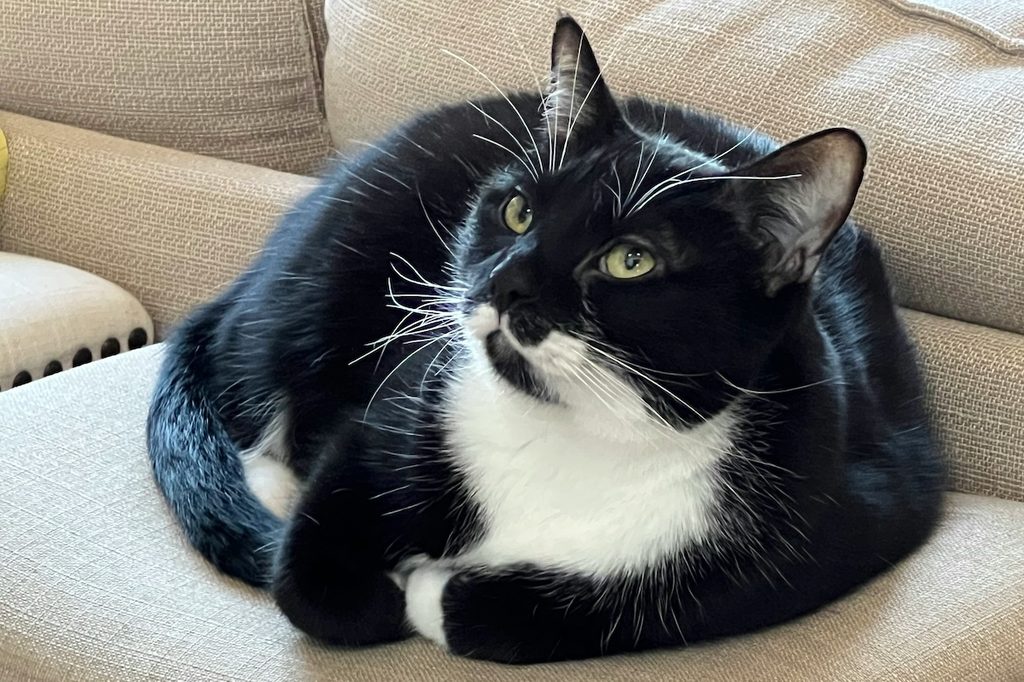One of the best parts of picking out a new pet is deciding what color you want. You have a blank slate of almost endless possibilities for your fur baby’s forever outfit. While we don’t recommend selecting on coat alone, it can help to narrow down the kind of kitty you look for.
Some patterns only come along with specific breeds, but others exist across the spectrum, including the tuxedo. Any cat with a black and white motif can qualify as a tuxedo, though since it’s not a breed, you’ll see all sorts of variations. Here’s what you need to know about bringing home tuxedo cats.
What is a tuxedo cat?

Named so because they resemble a man in formal wear, a tuxedo cat just indicates any feline of any breed that sports this dapper coat. That means multiple different types of kitties can have the tuxedo design. Some are small and others are large — they don’t have any set characteristics outside the black and white appearance.
Luckily, cats have their coloring even as babies, and you’ll rarely see changes as they age, so you can easily select the perfect little cat from a litter. Special tuxies to look out for: Ones with a small black spot on their necks resembling a tie, cats with white feet that seem to sport booties, and the “killer,” which looks like they have a white mustache.
Do keep in mind that some shelters and breeders might advertise a cat with a gray or off-white coat as a tuxedo. Carefully check out your new pet before you commit, to ensure you’re getting the mighty fine feline that you desire (although once you fall in love, their exact shade suddenly doesn’t matter so much).
What breed is my tuxedo cat?

It can be almost any breed, though The Cat Fanciers’ Association (CFA) doesn’t allow this piebald (spotting) pattern for certain standards. Some of the most popular include the American shorthair, the Devon Rex, and the Maine Coon. All three of these breeds have very different characteristics and temperaments, representing the wide span of cat types that you can find with the distinct markings.
Importantly, it’s also the breed more than the color that determines price in this case. If you don’t much care about pedigree, definitely look at local rescues and shelters that will cost a lot less and allow you to bring a cat-in-need into your home.
Tuxedo cat history

Tuxedo cats are special because they have both the black genes and the ones to make white spots. Interestingly, the genetic makeup for this trait actually suppresses the black color on a scale of 1 to 10, with 10 being the highest. Your ultimate “gentleman” would rate on the lower end of that scale because they’re still mostly black, just like the garment that gives them their name.
This epic combo produces one of the most beloved patterns, and these markings go back thousands of years, at least to Ancient Egypt, where some tuxedo cat drawings have been spotted on tombs. You will find many top-notch tuxies in modern times as well, such as the eponymous Cat in the Hat.
Tuxedo cat care

Remember that your cat’s breed has more impact on their specific care needs than the color of their fur. However, all mousers need some routine maintenance, regardless.
Brush their fur
Even more important for animals with long hair, you’ll want to keep that beautiful, shiny black hair clean and free of matting. Unfortunately, your kitty may also need the occasional bath or wipe down, much to their dismay.
Trim their nails
No one likes being scratched by a cat, which hurts even worse when they haven’t had their nails serviced. For many fur balls, a scratching post does the job fine on its own, but others require a manicure now and then. A groomer or your cat doctor can help you with this.
Keep up with their medical care
All cats should go to the vet once or twice per year, depending on age and health history. During check-ups, your pet will receive basic shots, get looked over, and have their weight assessed. While fat cats look cute, those extra pounds can increase their risk of disease and premature death.
While not all tuxedo cats look and act alike, they all have an absolutely smashing coat that will be sure to turn heads. Many tuxies are actually domestic shorthairs, but because they can be almost any breed, you’ll have to think a little harder before deciding exactly which kitty to get. In some ways, we think that’s better since it allows you to approach finding your special cat by figuring out which furry friend will fit best in your household and then selecting the perfectly suited-up cat to meet your needs.





